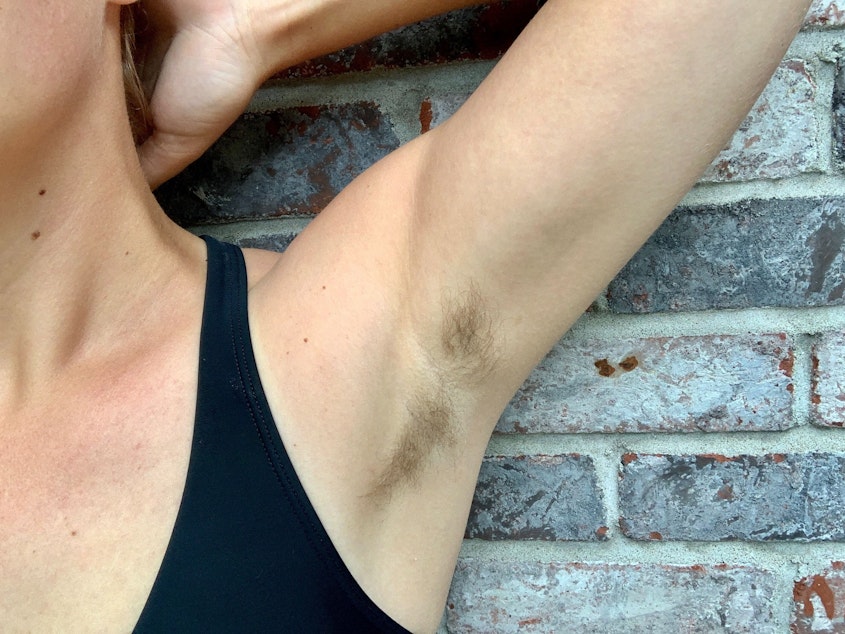Take a lesson from Gen Z: Let your body hair grow

In the time of Covid-19, our hairstylists, waxers and threaders aren’t available to keep us looking fresh. Many of us are trying to figure out what to do about our body hair as our hair continues to grow and grow ... and grow.
The younger generation doesn’t seem to mind.
Make no mistake — Gen Z thinks about body hair. It’s something my friends and I talk about a lot.
“I have a lot of thick arm hair and armpit hair and just body hair in general,” my friend Tess tells me.
My friend Kira can relate. “I am Fijan Indian, so I have it on, like, my arms pretty visibly and my legs and my … finger knuckles.”
As for me, my body hair is light brown and golden-y on my arms and dark brown on my legs.
Growing up, my mom told me not to shave. She said shaving would make my hair grow back thicker and darker. I would go to track practices and feel embarrassed when I had to wear shorts.
Sponsored
When I got to high school, I noticed that some girls didn’t remove their body hair.
“I really don’t care if I randomly wear shorts to school and my legs are hairy,” my friend Greta says. “It’s not a problem for me. It’s almost about what persona I feel like putting on that day, like, ooh, do I feel like standing out and rocking the body hair, or do I feel like fitting into a more standard norm?”
The “standard norm” — the one women older than us have abided by. Having no hair south of their eyebrows.
But Greta and others in my generation seem to be okay with having a hairy leg day.
So why are we more accepting of our body hair?
Sponsored
Jess Watts studied Gen Z for a marketing campaign. Gen Z refers to people born between 1995 and 2015 who are currently 5 to 25 years old.
She learned that we have been encouraged all our lives to express ourselves.
Members of Gen Z "tend to be a lot more liberal and fluid in how they see themselves and how they accept and see the world,” Watts says.
Watts even has a special name for us: “identity-shifters.” That means we’ve got a really nuanced relationship with identity.
She says Gen Z has a wider awareness of gender and a sense that it's on a spectrum.
Sponsored
“They are much more comfortable in terms of expressing themselves in ways that don’t fit traditional gender norms,” Watts says, “and really pushing back on entities or brands or any type of authority figure that tries to tell them how they should act within a certain gender ideal. And that includes body hair.”
Watts makes the point that our attitudes about body hair thing are deep and cultural and decades old, and they are heavily influenced by pressure from parents and peers. She also says that expectations about removing body hair are super gendered.
In her research, she learned how connected body hair and identity are.
“Body hair can be such a way to express your identity,” Watts says, “and it can be such an outward signal to the world of your values and what you care about.”
Greta says that Watts' research makes her feel hopeful: “It makes me wonder if this is a step towards like, all types of body acceptance in the future.”
Sponsored
To those of you at home, watching in dismay as your mustache grows, I humbly suggest you take a cue from my generation: embrace the growth, and don’t stress the hair.
This story was created in KUOW's RadioActive Advanced Producers Workshop for teenagers, with production support from Kyle Norris. Edited by Isolde Raftery.
Find RadioActive on Facebook, Twitter, TikTok and Instagram, and on the RadioActive podcast.
Support for KUOW's RadioActive comes from the Bill & Melinda Gates Foundation Discovery Center.



